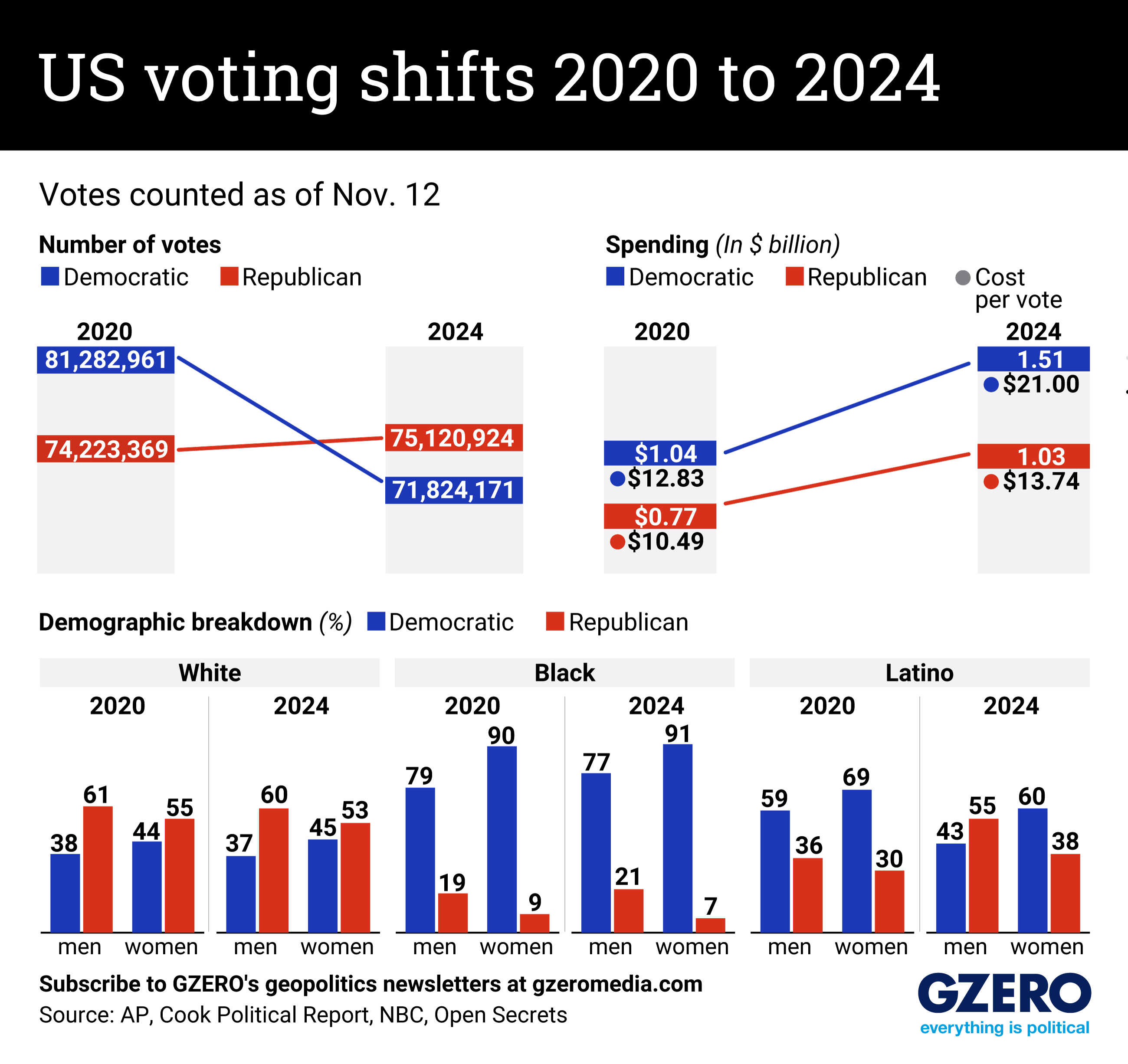The votes are still being tallied following Donald Trump’s win in the US presidential election, but looking at preliminary voter data gives clues to what happened in the American electorate last week.
The final vote numbers for Democrats are expected to continue to rise, especially since California is still being counted, and pollster Nate Silver projects that Kamala Harris will win around 75.7 million voters and Trump will win 77.9 million. But it is clear that Harriswill not match Joe Biden’s Democratic turnout in 2020. A large portion of this can be attributed to Democrats having control over the White House this time around. History shows us that voters turn out at higher numbers when they are voting their opposing party out of office.
This is disheartening for Democrats considering they upped this spending from 2020, shelling out $1.51 billion compared to the GOP’s $1.03 billion. Breaking that down by cost per vote, Democrats spent $7 more than the Republicans did for each vote in 2024, and a vote for Harris cost $9 more than for Biden in 2020.
Exit polls also show that the Democrats lost votes among Black and Latino voters. Trump gained 19 points among Latino men and 8 points among Latino women. Among Black voters, three out of 10 men under age 45 went for Trump, roughly double the share he got in 2020.
